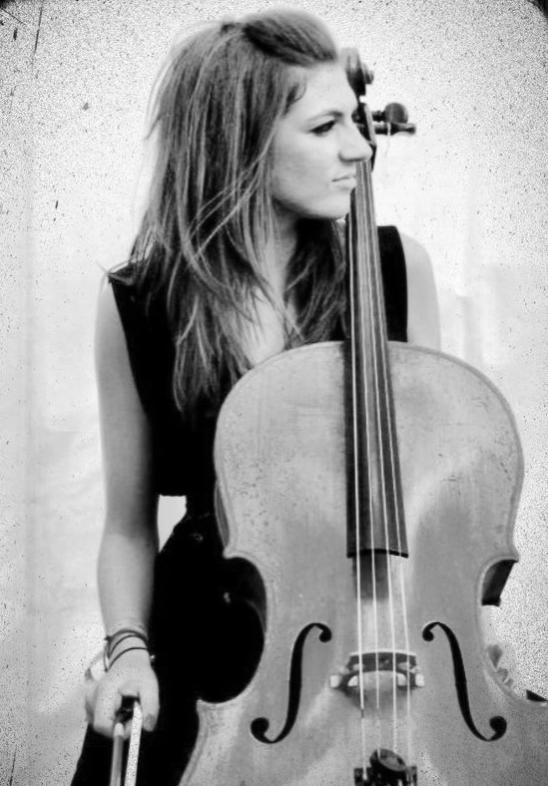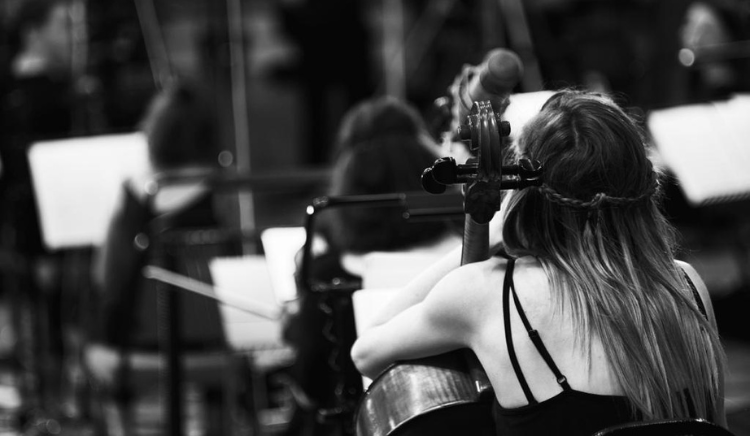The BRIT Trust is the principal charity of UK recorded music and aims to improve lives through the power of music and the creative arts. Funded largely by the annual BRIT Awards and Music Industry Trust (MITS) events, the Trust’s work is enabled by a Board of Trustees chaired by Tony Wadsworth CBE. Since its foundation by record labels and the BPI in 1989, the Trust has donated around £28m to a range of causes that promote education and wellbeing, including The BRIT School, Nordoff Robbins, Mind, Music Support, ELAM, and Key4Life. To learn more visit www.brittrust.co.uk.
To help explain and promote the work of The BRIT Trust and the charities it supports, the Trust publishes a regular series of BRIT Trust Diaries which we hope will provide interesting insights.
Here, Rachael Lander, a musician and a trustee at music industry addictions and mental health charity, Music Support, speaks candidly and movingly about her struggles with her mental health and addictions, but also how, with the help and commitment of Music Support, she is in recovery and overcoming these.
Music Support Trustee Rachael is in recovery and an active musician (celloist) working in the industry. Most recently she performed with Sir Elton John as part of the Queen’s Jubilee and has a phenomenal pedigree cross-genre. She is also a single mum and phenomenal role model in many ways. Rachael Lander (rachaellandercello.com)

“Fourteen years ago, around the time of my first sober anniversary, I was working as an extra in a well-known chamber orchestra.
I was starting my career as a freelance cellist, and I’d auditioned for the resident cello section in a wood-panelled room just off the Finchley Road a few weeks earlier.
The other cellists were delightful, supportive, experienced, and supremely talented. They had beautiful instruments, formidable CVs, and were kind about the erroneous B-flat I’d accidentally honked out during one of the orchestral excerpts.
Miraculously, I made the cut, and found myself sitting among them, performing a Mozart Opera in a long black dress to an audience of shiny happy opera people. I’d practiced the cello part with a recording, so I knew it well enough not to play any wrong notes (known in the trade as “spares.” You’re welcome) I looked just like everyone else, scraping away, bow moving in the right direction. I was so grateful to be there, even though I was terrified and raw without the alcohol I’d used in the preceding years to manage my ever-present adrenaline.
Sitting on that stage under the white lights with all those musicians in their concert finery, felt a long way away from the Librium “home detox” my family and I had endured the previous year. One of the brutal side effects of alcohol withdrawal caused me to hallucinate insects crawling over my skin and I sweated and writhed through almost hourly panic attacks. The notion that I would ever play the cello in public again was utterly absurd.
Despite my obvious symptoms, I was stuck firmly in the denial stage of my illness. I was sure that if I could get some pharmaceutical help with my anxiety and stop trying to do something as stressful as playing the cello for a living, I’d be able to have the odd glass of red at dinner with impunity.
The whole vodka in a water bottle thing was just a blip. I had no idea that I’d lost the power of choice, that I had the illness of addiction. I thought I was just weak. Broken. That there was something fundamentally wrong with me, at my core.
It was unspeakably lonely. Shame clung to me like a weighted blanket. Looking back, the worst part of this period was the racing confusion in my mind about what was wrong with me. I simply did not understand what I was dealing with or why I couldn’t stop drinking, even after it became clear that alcohol was ruining my health and my relationships.
Fifteen years later, I am armed with an education about addiction, and more is being revealed to me all the time. I have learnt mainly from other alcoholics and addicts in church halls who have been through the same horror. I grew up in middle class privilege, surrounded by educated, well-intentioned people that wanted to help me, and none of us knew anything about addiction. Lack of knowledge, stigma, and wonky portrayals of addiction in the media keep people isolated in the prison of their illness, which is why when Music Support ask me to speak publicly about my experience I always say yes.
Music Support is a charity that I wish had existed when my drinking was at its most bewildering. We are trying at Music Support to change the conversation about addiction and mental health in every area of our industry. I fervently wish that someone in the faculty of the conservatoire I studied at had attended the addiction workshop we run at Music Support. I wish I’d had a helpline like ours to call in my early twenties when I felt like I couldn’t’t go on stage without a water bottle filled with vodka.
A couple of years into sobriety, I performed at a major UK festival with a famously debauched band. Drink and drugs were being passed around the tour bus and I felt unsafe, trying to manage my feelings and stay away from it all. I wish I could have gone to one of our Music Support Safe Hubs and spoken to one of our trained volunteers. I could have been with other sober people in my industry and found some safety and community amongst the madness. I wish I could tell someone at work that I’m a recovering alcoholic without their eyes widening in shock because the stigma of the word and the illness is still so prevalent.
I don’t need to explain here how the pandemic has brought many in our industry to their knees. Colleagues of mine have needed the incredible multi-pronged crisis support that we offer at Music Support when they have hit a rock bottom and found themselves unable to work. They have needed detox. Rehab. Clinicians. The understanding of their colleagues and workplaces. All of that requires clinical expertise and ongoing tailored support, and unfortunately, that costs vast amounts of money. Funding someone’s admission to rehab is Kafkaesque in its complexity. We have a dedicated team that painstakingly oversee this process, but we need resources and money to get our beneficiaries the help they need and deserve.
The BRIT Trust’s vital funding has enabled Music Support to help break the cycle of isolation and shame for many members of the music industry who are now recovering with dedicated support. Our workshops are educating industry peers at all levels – whether artists, crew, right through to senior executives – about how to treat their colleagues who are struggling with addiction and mental ill health. All of us at Music Support have struggled with the issues our beneficiaries present with. Our desire to help comes from lived experience of getting through the mire to the other side.
I no longer need to drink alcohol before getting in the shower to prevent punishing symptoms of withdrawal before they start. I now perform sober to a packed theatre in my job in a West End show. I hear music on films and television that I was lucky (and sober) enough to record the score of. My parents no longer have to worry about my drinking. My children have never seen me drink. That said, I’ll always be an addict and I still need support in the form of therapy and 12 step recovery. Like every human I know, I grapple with difficult feelings. I find being a sentient person mind-bogglingly hard sometimes. Recovery means that I can show up for my life and the people I love without escaping into a vodka bottle.
At Music Support we want to give every struggling person that approaches us for help that same opportunity. We are forever grateful to the Brit Trust for helping us to continue with that work”.
